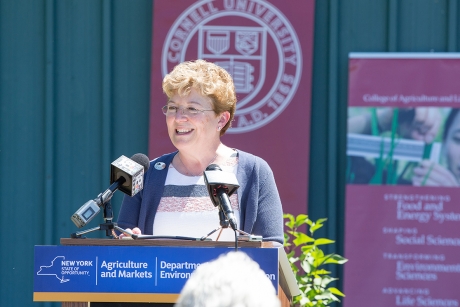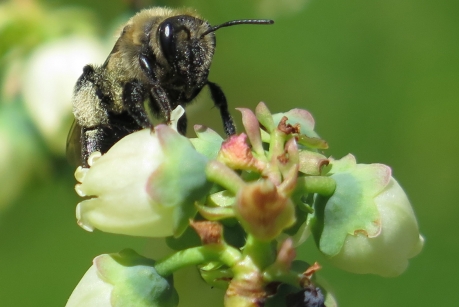
Cornell Chronicle [2016-06-27]
State officials and Kathryn Boor, the Ronald P. Lynch Dean of Cornell’s College of the Agriculture and Life Sciences, announced recommendations of the New York State Pollinator Task Force at Cornell’s Dyce Lab for Honey Bee Studies in Varna, New York, June 24.
The 2016-17 state budget includes $500,000 to help implement practices and conduct research outlined in a New York State Pollinator Protection Plan developed by the task force and its advisers.
“Pollinators are critical to food production worldwide, and as a consequence they contribute in a very important way to our state’s, our national and our global economies,” Boor said. “Apples, squash, pumpkins, pears, tomatoes, strawberries, cherries all are among the pollinator-dependent crops that annually generate more than $500 million for New York state’s agricultural economy.”
At the same time, according to research, managed honeybees and native pollinators are in serious decline.

See also: Scientists to examine spread of disease in bees with NIH grant Cornell Chronicle [2016-06-27]
A team led by Cornell researchers has received a five-year, $2.2 million National Institutes of Health grant to develop an approach to better understand how pathogens that infect bees and other pollinators are spread.
In New York state alone, 13 percent of bee species are experiencing declining ranges and populations. Nationwide, beekeepers are losing close to half of their honeybee colonies every year, in part due to disease.
Scientists have identified key viral, bacterial and fungal pathogens that cause bee diseases and lead to declining populations. This decline is a major concern as pollinators – especially wild and managed bees – are critical to native ecosystems and agricultural crops, providing the equivalent of billions of dollars in pollination annually.


